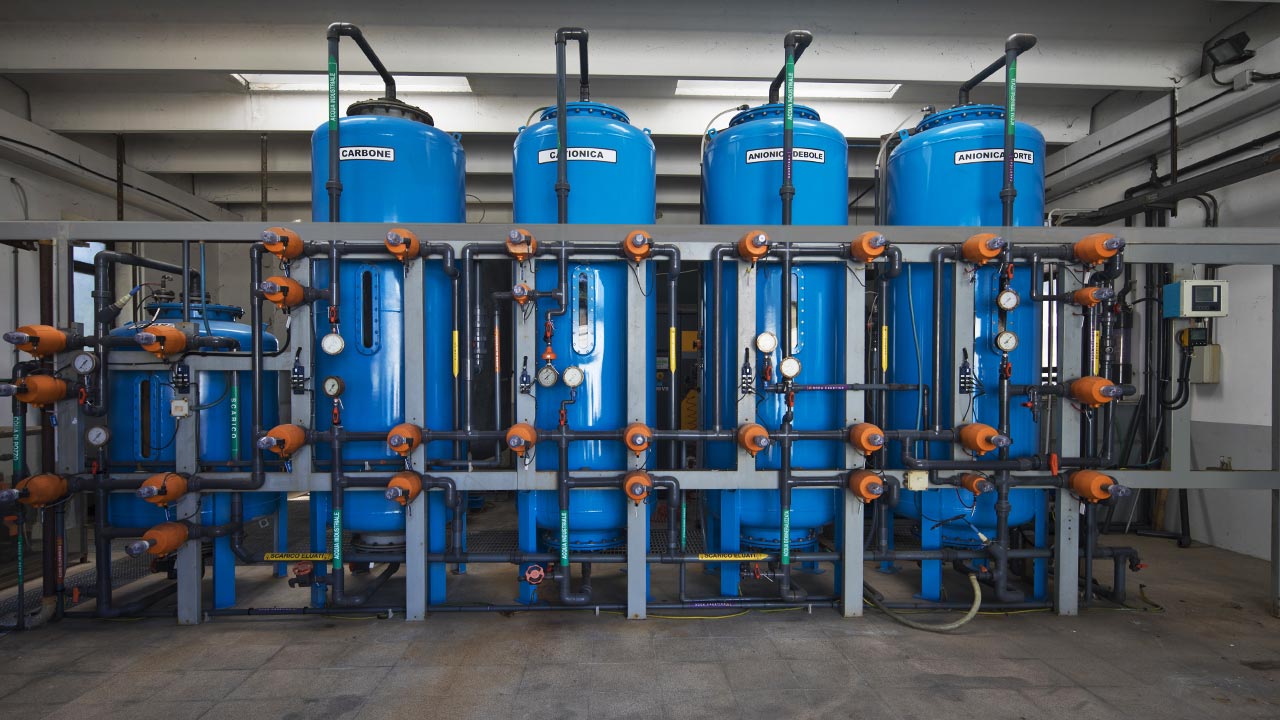
Recovery in Water Production
Water flows used in the different processing stages can be restored and reused in productions, allowing more than 95 percent water recovery.
This type of savings is possible by using decanters, reverse osmosis plants e resin demineralizers, which subject the flow to processes of separation and purification from pollutant molecules, or compaction of wastewater.
In particular, the reverse osmosis one intervenes with semipermeable membranes, subjected to controlled pressure, whose function is to deprive the water of salts and impurities.
Instead, the demineralizer acts on purification through resins that exchange ions with the water flow and retain dissolved salts.

To optimize and complete the purification cycle, both systems can be equipped with an Evaporation plant, which reduces the volumes of effluent, containing substances destined for disposal.
These water treatment technologies make it possible to reuse the same streams used in processing, sending them upstream in the production cycle with the guarantee of adequate purity and saving on both supply and disposal costs.
Water recovery in production facilities is one of the useful activities to decrease the ecological footprint: the flow is almost completely replenished and reused in an almost closed loop, and the waste to be sent for disposal is minimal.
This intervention strategy falls within the directions of the European Legislation and the Ecological Transition Plan, dealing with the subject of sustainable and circular resource management.
